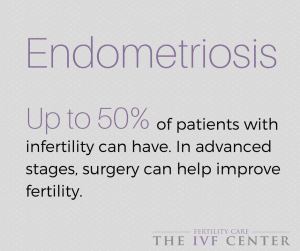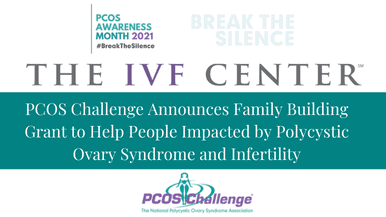Infertility isn’t something to be taken lightly. It is a disease that impedes the reproductive system of the human body, causing distress, anxiety and anguish for many couples throughout the United States. So, what are some of the common reasons for infertility when trying to conceive and how can they be treated?
Infertility impacts both men and women equally, and 25% of infertile couples have more than one factor contributing to their inability to conceive a child.
Understanding the key factors affecting infertility can help couples come to terms with infertility and begin to work toward surmounting it.
Below, Mark P. Trolice, M.D., board certified reproductive endocrinology and infertility specialist and founder of The IVF Center, continues his analysis of the major causes of infertility in couples. To read part 1 of the common Reasons for Infertility post, click here.
1. Being “Special”
In this kind of situation, a woman can be born with an absent uterus, and in that case, she would need a surrogate to be able to carry a pregnancy.
Another issue that’s unique for a woman is premature ovarian failure or ovarian insufficiency. In that situation, she can’t produce any further eggs, and would need an egg donor.
As for the man? He can be born with absent ducts that prevent sperm from being transported. In vitro fertilization (IVF) helps solve this by taking sperm from the testes to fertilize an egg. There is also donor sperm for those men whose sperm quantity and quality may be lower than normal.
2. A Womb with a View
When a woman has congenital issues with the uterus, it can contribute to infertility problems. Complications such as polyps, fibroids and scarring inside of the uterus, as well as abnormalities with the opening of the cervix, can reduce implantation of the fertilized egg and increase the risk of miscarriage.
Surgery is the best method to resolve these issues.
3. One Major Pain…
 Of all the problems with infertility, endometriosis can cause significant, sometimes debilitating pelvic discomfort. Endometriosis can generate scarring in the pelvis and distort the makeup and form of the pelvis. The fallopian tubes can also become obstructed and cysts known as endometriomas may form. Any of these changes may contribute to infertility.
Of all the problems with infertility, endometriosis can cause significant, sometimes debilitating pelvic discomfort. Endometriosis can generate scarring in the pelvis and distort the makeup and form of the pelvis. The fallopian tubes can also become obstructed and cysts known as endometriomas may form. Any of these changes may contribute to infertility.
In fact, up to 50% of patients with infertility can have endometriosis. The good news is that in advanced stages, surgery can help improve fertility.
4. Men Don’t Ask For Directions
Even though there’s usually only one egg per ovulation, millions of sperm are normally released in the man’s ejaculate. However, very few make it out into the fallopian tubes.
What potential problems can a sperm analysis uncover? We’re looking for the number of sperm; the percentage of good moving sperm and the shapes of the sperm. Any of those having an abnormality, we recommend having an evaluation by a reproductive urologist, who’s trained in male infertility.
5. Ability to Carry a Baby
This unfortunate circumstance involves women who have a uterus that is just not able to sustain a pregnancy. And that’s called ‘recurrent miscarriage.’ And unfortunately, up to 50% of those cases are unexplained.
 If we can find a reason for the uterine dysfunction, there’s a very good prognosis. If we can’t find a reason, advanced technology like in vitro fertilization (IVF) with chromosome testing is very effective.
If we can find a reason for the uterine dysfunction, there’s a very good prognosis. If we can’t find a reason, advanced technology like in vitro fertilization (IVF) with chromosome testing is very effective.
Don’t lose hope! The staff at The IVF Center is committed to helping patients overcome infertility and reach their goal of starting, or expanding, a family.
If you’re having problems getting pregnant or are concerned about infertility, contact us for an appointment to find out how The IVF Center may be able to help turn your dream of a family into reality.






